Over 200 people gathered at the Canadian Museum for Human Rights on the evening of October 13 to commemorate the 40th anniversary of 10 Bahá’í women who were tragically executed by Iranian authorities in the city of Shiraz, Iran for refusing to renounce their faith. One woman was only 17 years old; most were in their 20s. The evening reception and accompanying art exhibit was part of the global #OurStoryIsOne campaign which honours the memory of the ten women and the ongoing struggle for gender equality lived by women of all faiths and backgrounds in Iran today.
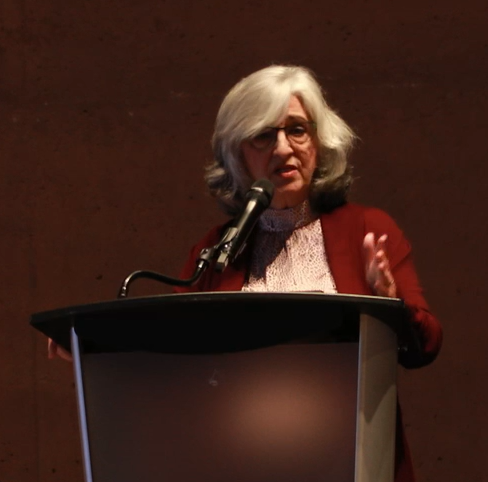
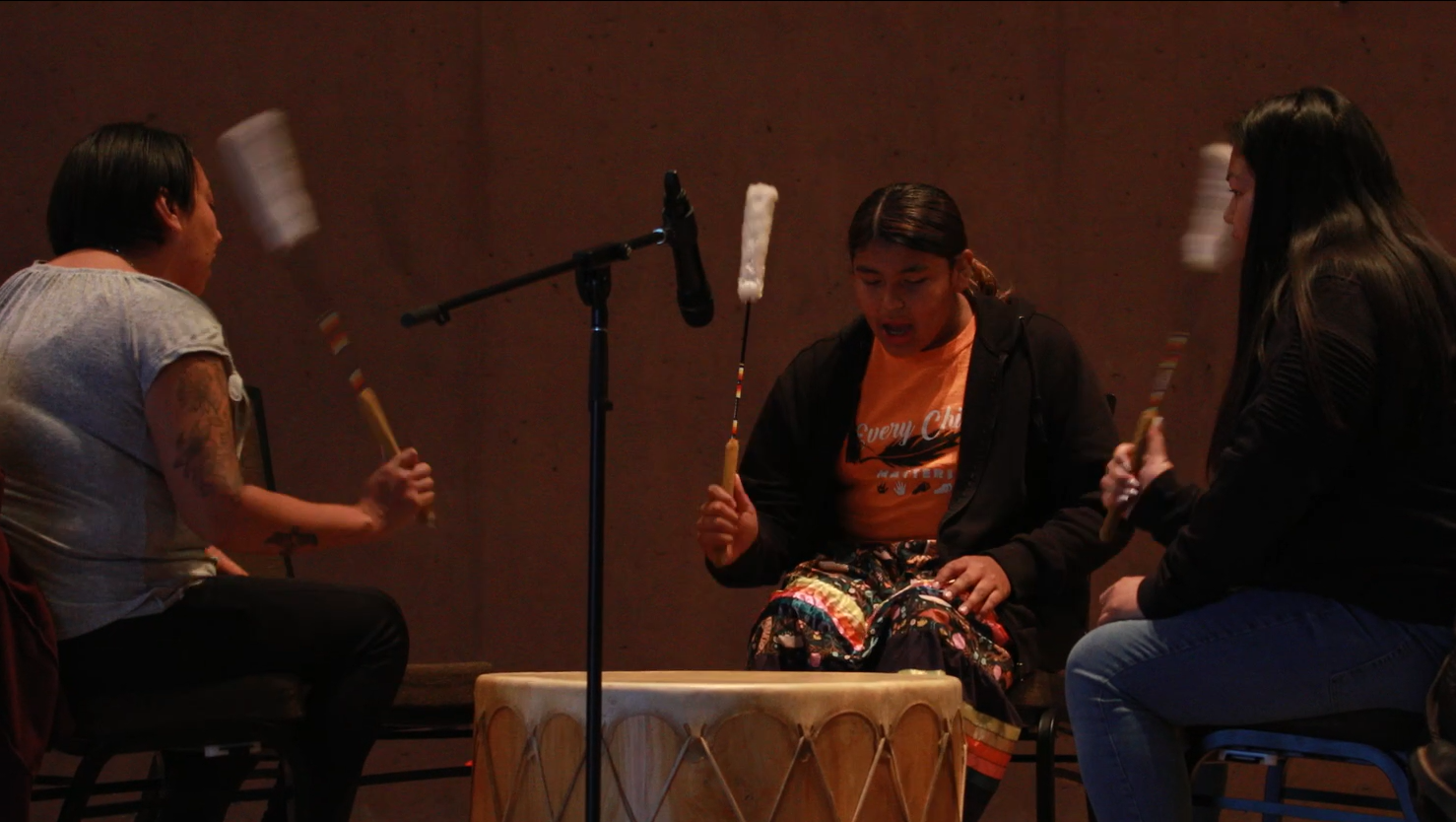
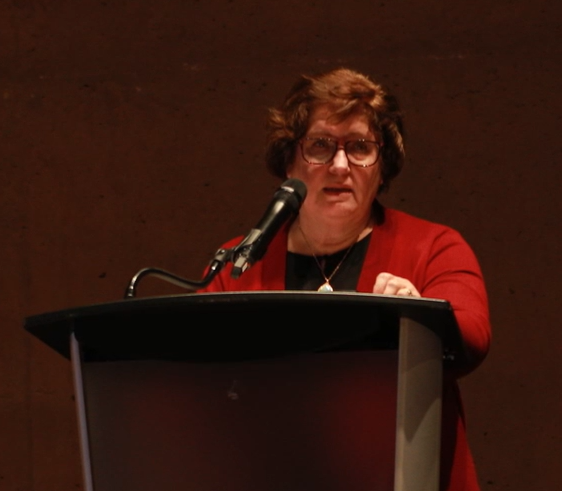
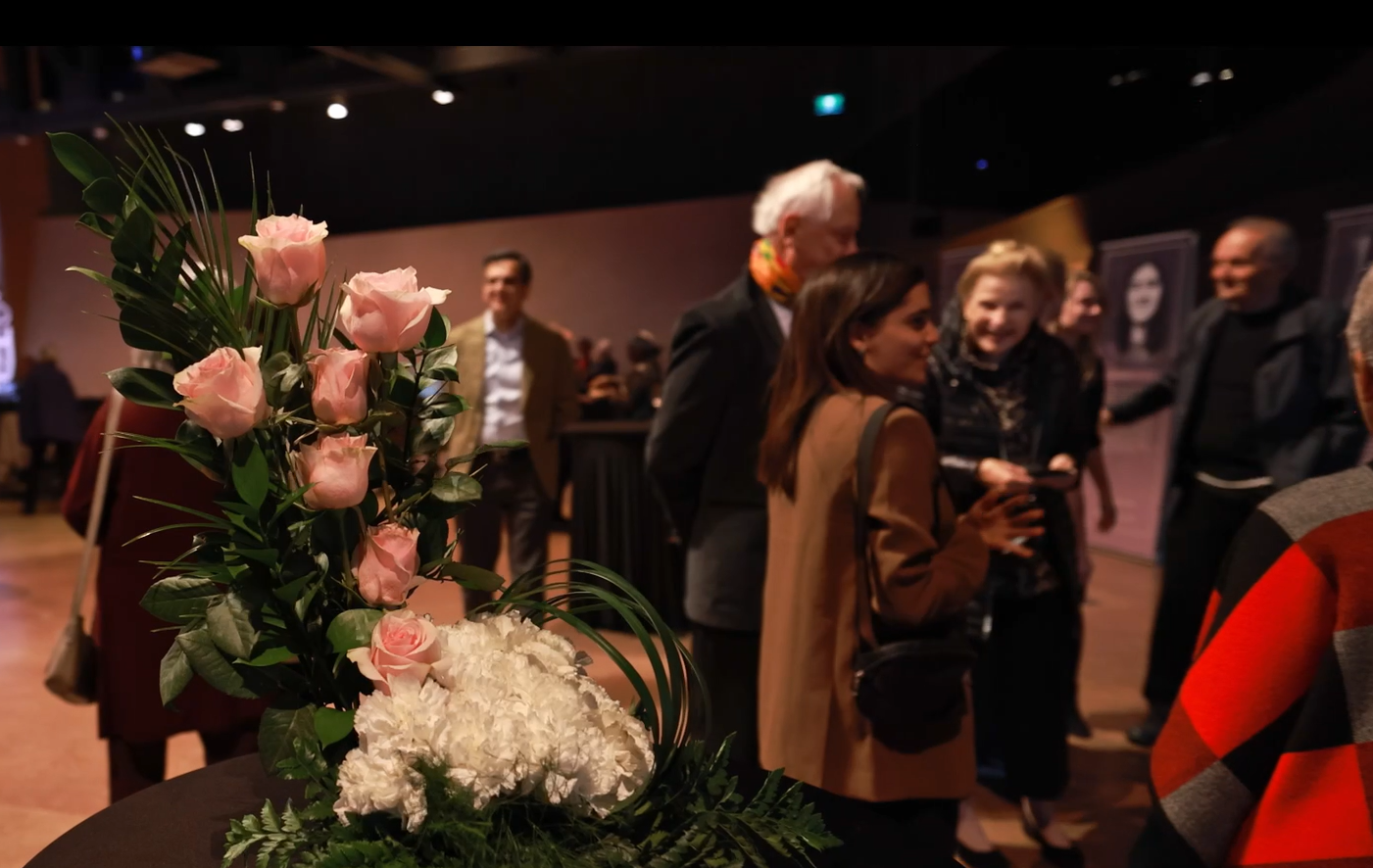
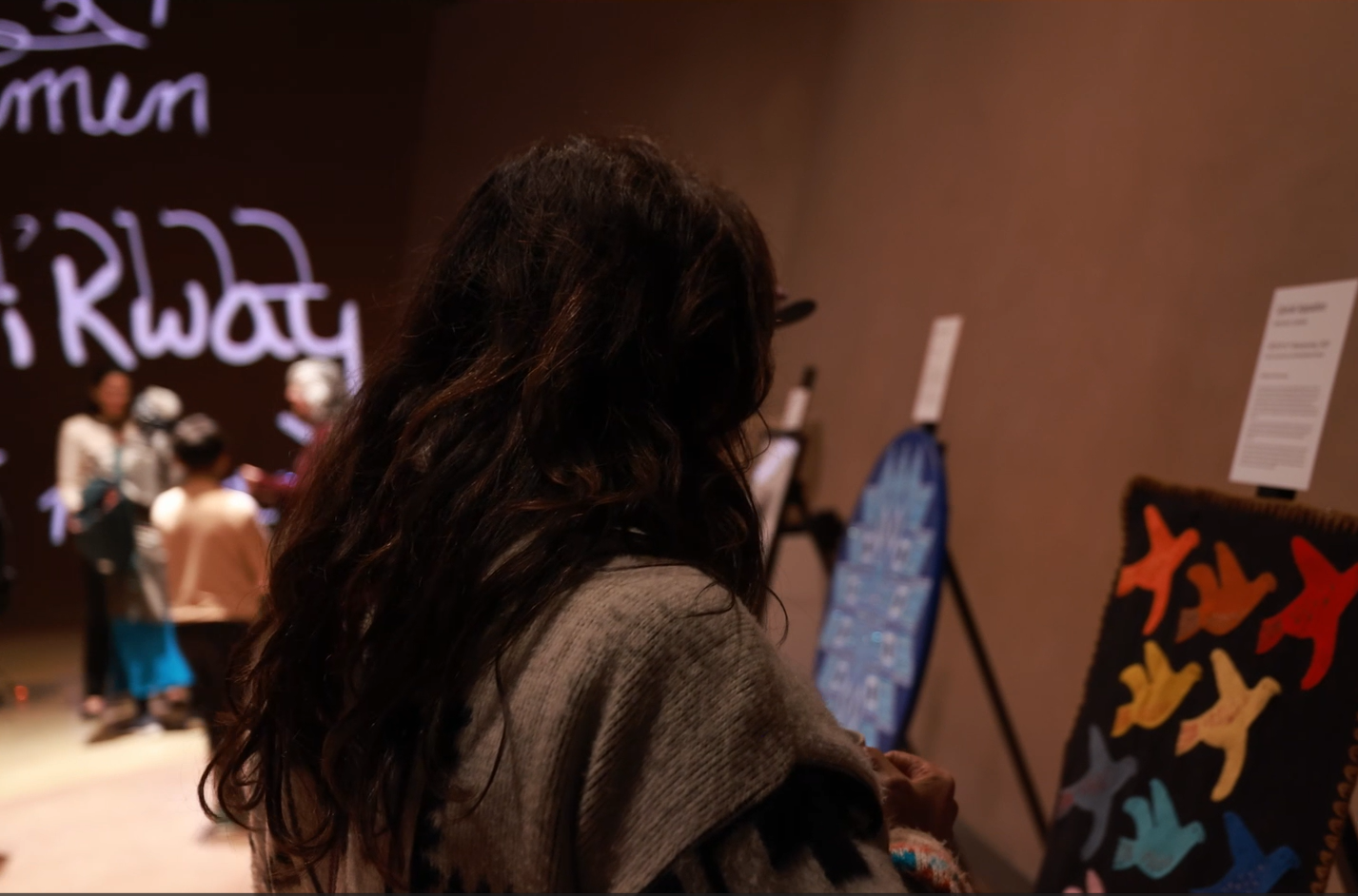
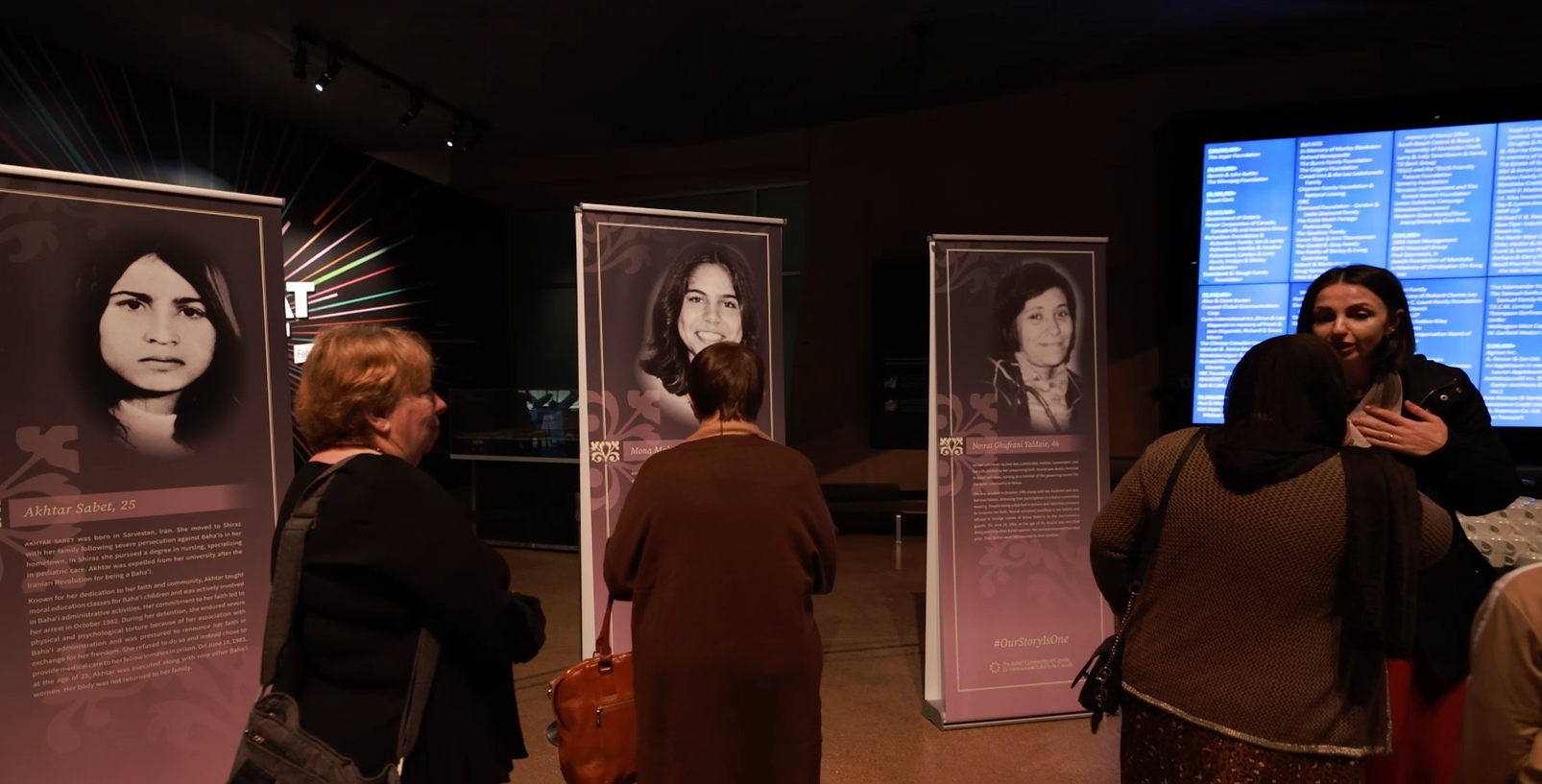
The event was co-hosted by the Canadian Bahá’í Community’s Office of Public Affairs and the Bahá’í Community of Winnipeg. It was the first national event to mark the 40th anniversary in Canada and follows many diverse local memorial programs organized by communities across the country since the year-long #OurStoryIsOne campaign launched in June 2023.
The art exhibit featured diverse pieces by Canadian Bahá’í artists inspired by the lives of the 10 women and the broader themes of hope, resilience, gender equality and social transformation associated with their lives. Banners placed around the museum hall also offered visitors the opportunity to learn more about each woman and connect with her story.
The evening began with welcoming remarks from Jordan Bighorn, a member of the National Spiritual Assembly of the Bahá’ís of Canada. “Forty years ago, on the night of June 18, ten women were abducted, imprisoned and executed by forces of hatred and ignorance that continue to ravage parts of the world today” said Mr. Bighorn. “Women have historically borne more than the burden of life itself and many continue to do so. Despite advancement across many arenas of society, we continue to observe that such advances often come at the sacrifice, courage and the sheer will of women around the world who we honour tonight” he continued.
Matthew Cutler, Vice President of Exhibitions at the Canadian Museum for Human Rights discussed the sacred significance of the Indigenous ancestral lands upon which the museum is built –at the meeting point between the Red and Assiniboine rivers. “This site has been a place of gathering, healing, peacemaking, and ceremony for time immemorial. Tonight is a continuation of the tradition of this place…” Mr. Cutler underscored how the example of the ten Bahá’í women aligns with the museum’s mission to raise consciousness about the struggle for justice and human rights around the world “The stories and spirit of the women have something to teach us about justice, human rights and the future of humanity. Our stories become one, and their stories continue to be a blessing of peace and justice for our shared future.”
Terry Duguid, Member of Parliament for Winnipeg South spoke about the continued impact of the lives of the 10 women, “We can take comfort that their memories live on and that, 40 years later, they continue to inspire hope and resilience among the Bahá’í community. We have not forgotten these brave women,” said MP Duguid.
At the heart of the program were moving remarks from Nahid Mazloum and Simin Khavari, relatives of three of the executed women who now reside in Canada. Ms. Mazloum, the sister of Roya Eshraghi, 23, and the daughter of Ezzat Janami-Eshraghi, 57, recalled fond memories of her sister and mother in the years prior to their execution. She recalled how much joy they found in offering hospitality to others in their home, in spending time in nature, and in their faith. Reflecting on the ongoing struggle for equality in Iran she expressed deep empathy for grieving families, “Every time we hear of beautiful people who have lost their lives there are daggers in our heart. We know what it is, and we know what it feels like to lose family members. Until we put the well being of all of humanity before our eyes we will not have peace”.
Ms. Khavari described her sister, Zarrin Moghimi, 29, at the time of her death, in her remarks. She shared Zarrin’s love of literature, poetry, and the deep knowledge she had of her faith. When reflecting on the ten women’s desire to contribute to their society she shared “Every single human being has a gift to offer humanity. They should be allowed for that gift to flourish. Imagine the world without Shakespeare or Monet. These women all had a gift to give humanity and their lives were cut short.”
In the final remarks for the evening, Belle Jarniewski, Executive Director of the Jewish Heritage Centre, shared the deep loss and trauma experienced by the Jewish community and the sense of connection she felt with the stories of the ten Bahá’í women. “The story of the persecution of the Bahá’í women resonates deeply. These extraordinary women bravely battled for their human right to practice their religion freely. They are symbols of heroism, inspiration and selfless courage. Their life was their faith and their faith was their life. May their memories be a blessing.”
The evening ended with a melodic prayer shared by Mr. Bighorn followed by a powerful closing drum song from the Southern Thunderbird medicine women’s drum circle.

